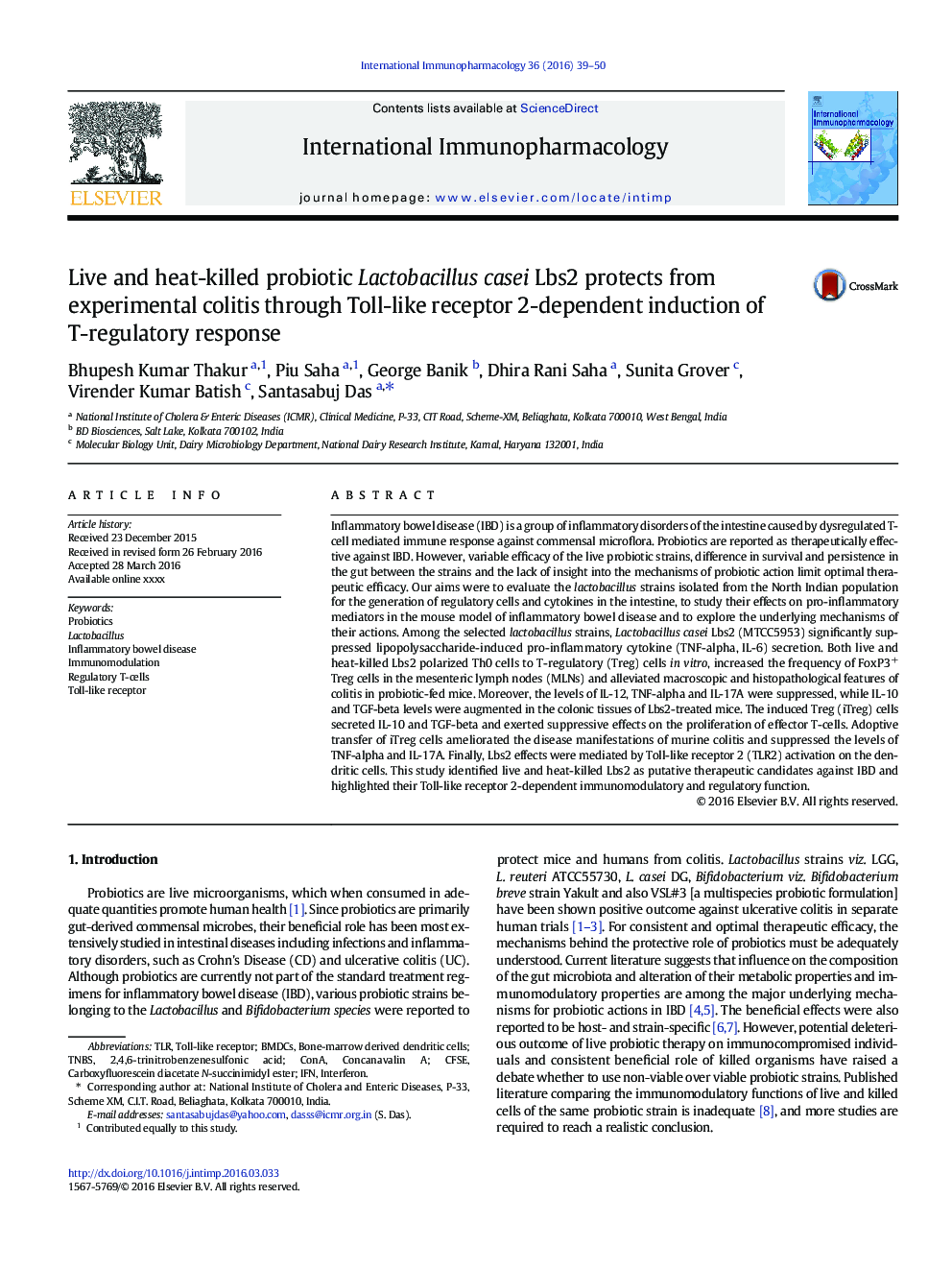| Article ID | Journal | Published Year | Pages | File Type |
|---|---|---|---|---|
| 5831971 | International Immunopharmacology | 2016 | 12 Pages |
Abstract
Inflammatory bowel disease (IBD) is a group of inflammatory disorders of the intestine caused by dysregulated T-cell mediated immune response against commensal microflora. Probiotics are reported as therapeutically effective against IBD. However, variable efficacy of the live probiotic strains, difference in survival and persistence in the gut between the strains and the lack of insight into the mechanisms of probiotic action limit optimal therapeutic efficacy. Our aims were to evaluate the lactobacillus strains isolated from the North Indian population for the generation of regulatory cells and cytokines in the intestine, to study their effects on pro-inflammatory mediators in the mouse model of inflammatory bowel disease and to explore the underlying mechanisms of their actions. Among the selected lactobacillus strains, Lactobacillus casei Lbs2 (MTCC5953) significantly suppressed lipopolysaccharide-induced pro-inflammatory cytokine (TNF-alpha, IL-6) secretion. Both live and heat-killed Lbs2 polarized Th0 cells to T-regulatory (Treg) cells in vitro, increased the frequency of FoxP3+ Treg cells in the mesenteric lymph nodes (MLNs) and alleviated macroscopic and histopathological features of colitis in probiotic-fed mice. Moreover, the levels of IL-12, TNF-alpha and IL-17A were suppressed, while IL-10 and TGF-beta levels were augmented in the colonic tissues of Lbs2-treated mice. The induced Treg (iTreg) cells secreted IL-10 and TGF-beta and exerted suppressive effects on the proliferation of effector T-cells. Adoptive transfer of iTreg cells ameliorated the disease manifestations of murine colitis and suppressed the levels of TNF-alpha and IL-17A. Finally, Lbs2 effects were mediated by Toll-like receptor 2 (TLR2) activation on the dendritic cells. This study identified live and heat-killed Lbs2 as putative therapeutic candidates against IBD and highlighted their Toll-like receptor 2-dependent immunomodulatory and regulatory function.
Keywords
Related Topics
Life Sciences
Immunology and Microbiology
Immunology
Authors
Bhupesh Kumar Thakur, Piu Saha, George Banik, Dhira Rani Saha, Sunita Grover, Virender Kumar Batish, Santasabuj Das,
